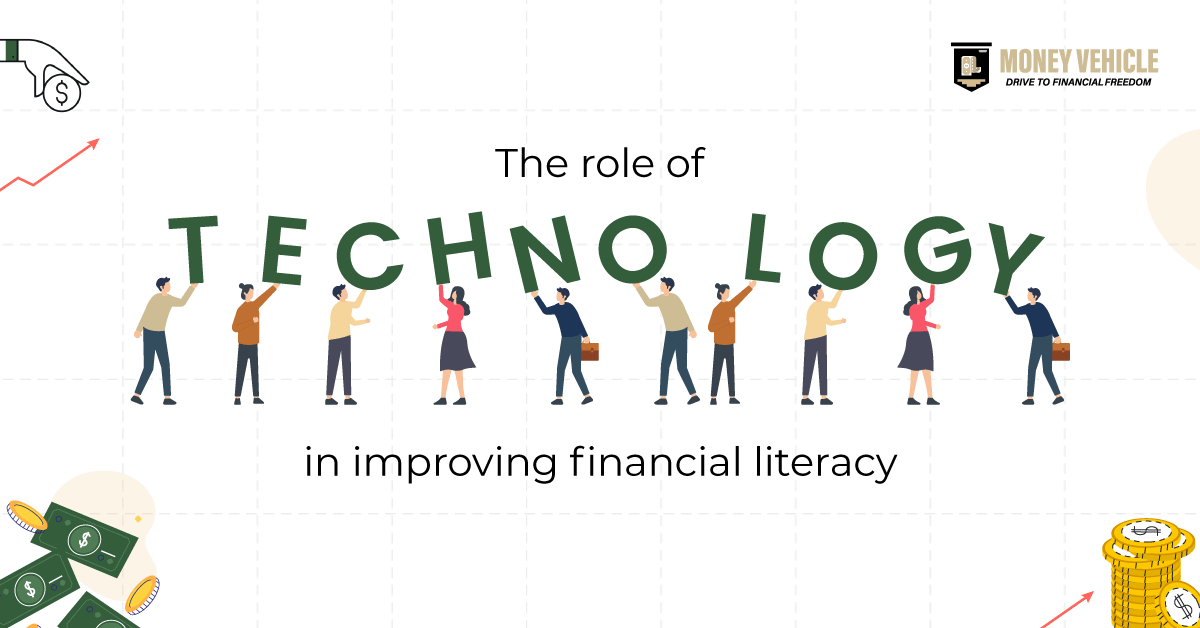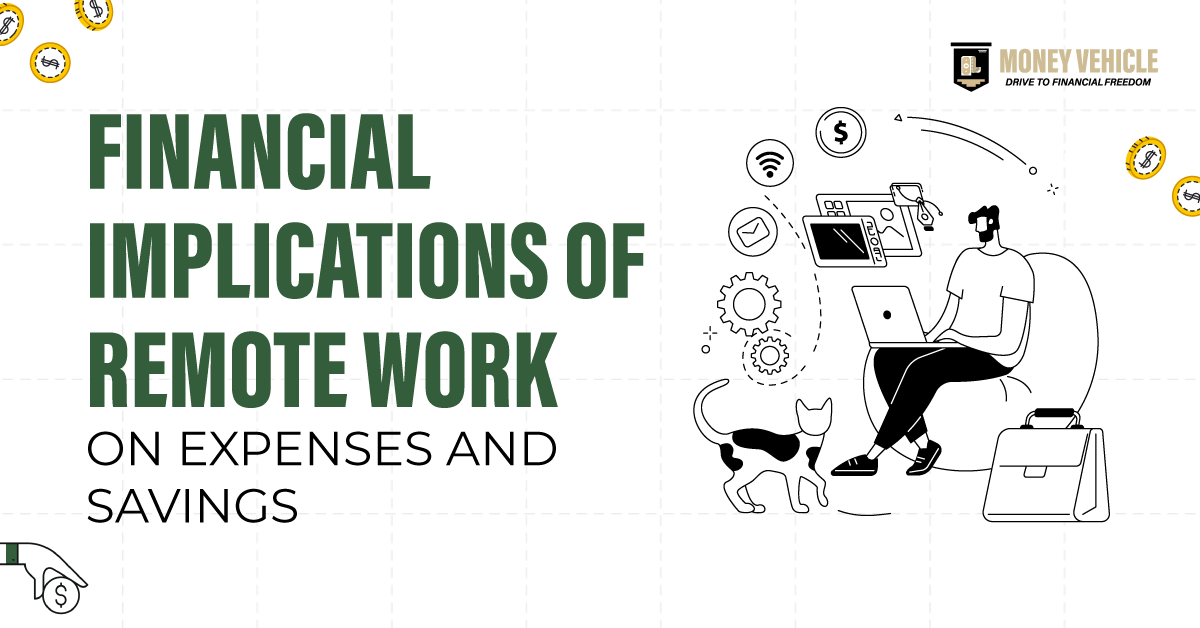In the rapidly evolving landscape of finance, the advent of Artificial Intelligence (AI) stands as a transformative force, poised to redefine personal money management. As we delve into the world of AI in finance, we uncover a realm where traditional financial strategies merge with cutting-edge technology, heralding a new era of financial planning and management. This revolution, driven by AI personal finance apps and financial AI tools, is not just about automation or efficiency; it’s about empowerment.
AI’s role in finance is multifaceted, from AI budgeting software that offers personalized financial advice to AI investment advisors that optimize portfolio management through sophisticated algorithms. The inclusion of machine learning in banking and artificial intelligence in credit scoring underscores AI’s capacity to enhance decision-making and risk assessment, making financial AI tools indispensable in modern finance.
For Generation Z, navigating the complexities of personal finance in today’s digital age requires more than traditional knowledge; it demands fluency in the innovative applications of AI for financial planning and management. Chatbots in banking, AI-driven wealth management, and personal finance AI trends are just the tip of the iceberg in this technological revolution.
This blog post embarks on a journey to explore how AI in finance revolutionizing personal money management is not just a trend but a fundamental shift towards smarter, more secure financial futures. Through the lens of AI personal finance apps and beyond, we aim to illuminate the path for individuals to harness the power of AI for their financial well-being, making the world of finance more accessible, intuitive, and empowering for everyone.
The Impact of AI on Personal Money Management
In the dynamic realm of personal finance, Artificial Intelligence (AI) is not just an accessory but a cornerstone that radically enhances how we manage our money. The integration of AI in personal finance apps and financial AI tools has revolutionized traditional methodologies, ushering in an era of precision, personalization, and efficiency.
Personalized financial advice has become a hallmark of AI’s impact. By leveraging AI algorithms, these innovative platforms analyze vast amounts of data – from bank accounts to credit history – to deliver tailored recommendations that align with individual financial goals and risk profiles. This approach not only democratizes financial advice, previously the purview of wealthier individuals, but also ensures that every decision is informed and every opportunity, optimized.
Automation stands as another significant contribution of AI to personal finance. Through AI budgeting software, tasks that once consumed hours – categorizing expenses, tracking bills, or calculating savings – are now accomplished in moments. This automation extends to investment advising and loan processing, where AI assesses market conditions and applicant data to offer suggestions or make decisions that would challenge even seasoned professionals.
Moreover, AI enhances decision-making by providing predictive analytics in finance. By analyzing trends and patterns, AI can forecast future financial scenarios, helping users make informed choices about their investments, savings, and spending. This foresight, powered by machine learning, transforms uncertainty into strategy, enabling individuals to anticipate and mitigate risks.
In the realm of AI-driven wealth management, the technology’s capability to process and analyze alternative data opens new avenues for investment that were previously unexplored or misunderstood. This not only broadens the investment landscape but also aligns with the values and interests of a more diverse investor base, particularly Gen Z, who favor sustainable investing and ESG considerations.
As we continue to navigate through the intricacies of AI in finance, it becomes evident that its role is not just to simplify but to empower. By making sophisticated financial planning tools accessible, AI is not only revolutionizing personal money management but is also setting the stage for a future where financial wellness and literacy are within everyone’s reach.
AI Personal Finance Apps: A New Era of Financial Planning
In the digital age, AI personal finance apps are leading the charge towards a new era of financial planning, making it simpler, more efficient, and accessible for everyone. These apps leverage AI algorithms and machine learning to provide users with personalized advice, automate budget tracking, and optimize savings strategies.
One standout app is Cleo, dubbed your personal AI Financial Assistant. Cleo analyzes your spending habits and provides actionable insights to help you save money and stick to your budget. It’s like having a financial advisor in your pocket, always ready to offer guidance and support.
Wally is another game-changer in the realm of AI budgeting software. It excels in tracking expenses and income, giving users a comprehensive overview of their financial health. With Wally, planning for the future and setting financial goals becomes an intuitive process.
Magnifi and Rocket Money are also at the forefront, offering a suite of features from budgeting to bill negotiation. They represent the fintech AI innovations that are reshaping how we think about managing our finances.
YNAB (You Need A Budget), although not purely AI-driven, incorporates some elements of artificial intelligence to tailor budgeting advice and strategies to individual needs, focusing on the zero-based budgeting method.
These AI personal finance apps not only automate mundane tasks but also provide deep insights into our financial behavior, helping us make smarter decisions. They embody the intersection of technology and personal finance, heralding a future where managing money is not just easier but also more aligned with our personal and financial goals.
By embracing these technological advancements, individuals can navigate the complexities of personal finance with confidence and precision, setting the stage for a financially stable and prosperous future.
The Power of AI in Risk Management and Fraud Detection
In the rapidly evolving financial landscape, AI in finance has become a game-changer, particularly in risk management and fraud detection. The integration of AI algorithms into financial systems has empowered institutions to significantly enhance their capacity to identify, assess, and mitigate risks efficiently while also proactively detecting fraudulent activities.
AI algorithms excel in analyzing vast datasets far beyond human capability, identifying patterns and anomalies that may indicate potential risks or fraudulent transactions. This is crucial in today’s digital age, where the volume of financial transactions and the sophistication of fraud attempts have dramatically increased. For example, AI-powered systems can monitor banking transactions in real time, flagging unusual activities that deviate from a customer’s typical behavior pattern, thereby accelerating the fraud detection process.
Moreover, AI’s predictive analytics capabilities are instrumental in risk assessment. Financial institutions can now predict potential risk factors and their impacts more accurately, allowing for preemptive measures to be put in place. This not only minimizes financial losses but also enhances the customer experience by reducing false positives that can disrupt genuine transactions.
Furthermore, machine learning models, a subset of AI, continually learn and adapt based on new data, improving the accuracy of fraud detection and risk management processes over time. This dynamic adaptation ensures that financial institutions stay ahead of fraudsters and effectively manage risks in an ever-changing financial environment.
By harnessing the power of AI, the finance sector is revolutionizing the way it approaches risk management and fraud detection, offering a more secure, efficient, and reliable financial ecosystem for both providers and users. This technological advancement is not just about protecting assets; it’s about building trust in financial systems and ensuring a safer financial future for everyone.
Financial Planning Made Easier with AI Budgeting Software
AI budgeting software is revolutionizing the way individuals and companies approach financial planning. With the integration of AI and ML (machine learning) technologies, these tools offer a new level of efficiency, accuracy, and personalization in managing finances. By leveraging AI algorithms, budgeting software can analyze vast amounts of financial data, identify spending patterns, and provide actionable insights to users. This not only simplifies the budgeting process but also empowers users with personalized financial advice, tailored to their unique financial goals and circumstances.
One of the key benefits of AI budgeting software is its ability to automate many aspects of financial management. From tracking expenditures and categorizing transactions to forecasting future expenses, AI-driven tools like Wally, Cleo, and Rocket Money offer comprehensive solutions that go beyond traditional budgeting. These apps can proactively suggest adjustments to spending habits, identify opportunities for savings, and even automate savings and investment decisions based on user-defined rules and goals.
Moreover, AI budgeting software is designed with the user experience in mind, offering intuitive interfaces and features like financial chatbots that provide instant assistance and advice. This user-friendly approach demystifies financial planning, making it accessible to everyone, regardless of their financial literacy level.
In essence, AI budgeting software is not just about managing money more effectively; it’s about transforming financial planning into a more proactive, personalized, and accessible process. By harnessing the power of AI, individuals and businesses can achieve their financial goals with greater ease and confidence, marking a new era of financial planning.
How Machine Learning is Transforming Banking and Investment

Machine Learning (ML) is significantly transforming the landscape of banking and investment, offering unprecedented efficiencies and capabilities. In banking, ML algorithms are being deployed to enhance customer service, improve risk management, and streamline operations. AI algorithms analyze customer data, spending habits, and financial history to offer personalized banking solutions. This customization enhances the customer experience, making banking more accessible and tailored to individual needs.
In the realm of investment advising, ML is reshaping how advice is given. By analyzing vast amounts of market data and trends, AI-powered investment advisors can make more accurate predictions about market movements. This allows for the development of automated financial advising systems that can provide investors with timely and data-driven advice, thus democratizing access to investment strategies that were once available only to the elite.
Portfolio management is another area where ML is making significant inroads. Machine learning enables the analysis of large datasets to identify investment opportunities and risks, thus allowing for the creation of more diversified and optimized portfolios. AI-driven wealth management tools use predictive analytics to anticipate market changes and adjust portfolios in real time, maximizing returns while minimizing risk.
Furthermore, ML enhances fraud detection in banking by identifying suspicious transactions and patterns that deviate from the norm. This proactive approach to security helps protect financial institutions and their customers from potential threats.
In conclusion, the integration of machine learning into banking and investment is not just a trend; it’s a revolution that’s setting the stage for a smarter, more efficient financial industry. As ML technologies continue to evolve, we can expect even more innovative applications that will further transform these sectors.
The Future of Financial Services with AI and Blockchain Technology
The fusion of AI and blockchain technology heralds a transformative era for financial services, promising enhancements in security, transparency, and efficiency. This synergy addresses some of the finance sector’s most pressing challenges, enabling revolutionary advancements.
Blockchain technology offers an immutable ledger, ensuring data integrity and transparency. When integrated with AI’s analytical power, this combination paves the way for more secure financial transactions. AI algorithms can analyze blockchain data to detect fraudulent patterns and suspicious activities, significantly reducing the risk of financial fraud.
Moreover, blockchain ensures the transparency of the data AI uses, fostering trust among users. This is crucial for financial institutions where trust is paramount. The immutable nature of blockchain records provides a reliable foundation for AI-driven financial advising, enhancing customer confidence in automated services.
AI’s predictive analytics, coupled with blockchain’s secure environment, revolutionizes risk management strategies. Financial institutions can now anticipate and mitigate risks more effectively, thanks to AI’s ability to analyze vast datasets stored on blockchain networks.
In investment and portfolio management, the combination of AI and blockchain facilitates smarter, more informed decision-making. AI-driven tools analyze market trends and investment opportunities, while blockchain’s transparent record-keeping supports accurate and tamper-proof tracking of transactions and portfolios.
As we look to the future, the synergy between AI and blockchain is set to redefine the financial services landscape. This partnership not only enhances operational efficiencies but also opens new avenues for innovation, promising a more secure, transparent, and efficient financial ecosystem.
This transformative potential underscores the importance of embracing these technologies. Financial institutions, investors, and regulators must recognize and harness the power of AI and blockchain synergy to drive the financial sector towards a more innovative and trustworthy future.
Embracing AI for Enhanced Financial Literacy and Independence
In today’s rapidly evolving financial landscape, the integration of AI in finance has become a cornerstone for achieving enhanced financial literacy and independence. The intersection of technology and finance opens up unprecedented opportunities for personal finance management, investment strategies, and risk assessment. As we look towards the future, it is imperative to underscore the significance of incorporating AI topics in financial literacy education and to motivate individuals to explore AI financial tools that can transform their approach to money management.
AI and financial literacy education together can provide a robust foundation for individuals to navigate the complexities of the financial world with greater confidence and acumen. Educating people about AI’s role in finance can demystify the technology and showcase its potential in making informed financial decisions, automating savings, optimizing investments, and detecting fraud.
Encouraging readers to engage with AI financial tools such as AI-powered budgeting apps, investment advisors, and fraud detection systems can significantly enhance their financial well-being. These tools not only offer personalized financial advice but also streamline financial operations, making financial planning more accessible and effective.
As we advocate for the inclusion of AI in financial literacy programs, educational institutions, financial advisors, and tech innovators must collaborate in developing curricula and resources that address the intersection of finance and technology. By doing so, we empower individuals with the knowledge and tools necessary to achieve financial independence and navigate the future of finance with confidence.
Let this be a call to action for educators, policymakers, and the fintech community to champion the cause of integrating AI into financial literacy education. Embracing AI for enhanced financial literacy and independence is not just an option but a necessity in the digital age, promising a more informed, efficient, and secure financial future for all.
Conclusion
In conclusion, the transformative potential of AI in finance cannot be overstated. Throughout this blog, we have explored how AI is revolutionizing every facet of the financial sector, from personal money management and risk management to banking and investment strategies. AI’s impact on finance is profound, offering unprecedented efficiency, accuracy, and security.
AI and machine learning technologies are not just future aspirations but current realities shaping the way financial institutions operate, how investments are managed, and how individuals approach their finances. They provide sophisticated tools for financial planning, fraud detection, and portfolio management, making financial services more accessible, personalized, and secure for everyone.
This is just the beginning of a journey into a future where financial services are more integrated with AI and blockchain technology, offering greater transparency, security, and efficiency. As we stand on the brink of this new era, it is crucial for everyone, from industry professionals to everyday individuals, to embrace these changes.
We encourage our readers to start their journey with AI in finance by exploring the provided external links and subscribing to our newsletter for more insights. Let’s embark on this exciting path together, leveraging AI to unlock the full potential of our financial capabilities and drive towards a more prosperous future.
For further exploration:
- How AI is Revolutionizing Personal Finance in 2023
- Top 10 Game-Changing Use Cases of AI in Finance
- Exploring AI Use Cases in Finance
- The Rise of AI in Personal Finance Management
By staying informed and open to the advancements in AI and finance, you are setting the stage for success in this rapidly evolving landscape.
Frequently Asked Questions
1. How will AI help finance professionals?
AI aids finance professionals by automating routine tasks, such as data entry and transaction categorization, thus freeing up time for more strategic activities. It enhances decision-making through predictive analytics, providing insights into market trends, customer behavior, and risk assessment. Furthermore, AI-powered tools improve accuracy in financial reporting and fraud detection, significantly reducing human error and increasing the efficiency of financial operations.
2. What role does artificial intelligence play in finance?
Artificial Intelligence plays a multifaceted role in finance, from automating customer service through chatbots in banking to enabling personalized financial advice with AI investment advisors. It revolutionizes risk management by analyzing vast amounts of data to predict and mitigate potential financial risks. AI also streamlines loan processing and enhances fraud detection capabilities, ensuring more secure financial transactions and operations.
3. What is generative AI in the financial sector?
Generative AI in the financial sector refers to AI systems capable of generating new data and insights that mimic real-world financial scenarios. This includes creating realistic financial models, simulating market behaviors for stress testing, and generating personalized financial plans or investment strategies. Generative AI can also assist in generating legal and regulatory documents, making it a powerful tool for innovation and compliance in finance.
4. Why is AI the future of financial services?
AI is the future of financial services due to its ability to process and analyze data at unprecedented speeds and scale, leading to more informed and rapid decision-making. It enables the personalization of financial services, offering customers tailored advice and solutions. Moreover, AI enhances the security and compliance of financial operations, detecting anomalies that may indicate fraud or breaches. As financial institutions continue to embrace AI, it will drive the evolution of financial services towards more efficiency, innovation, and customer-centricity.







